Am 6.3.2015 sprach das IDE-Mitglied Ulrike Henny zusammen mit Pedro Sepúlveda von der Neuen Universität Lissabon beim Seminar „Assuntos Órficos“, das im Rahmen des Projektes „Estranhar Pessoa“ an der Portugiesischen Nationalbibliothek in Lissabon am 5. und 6. März stattfand. Das Seminar beschäftigte sich mit der ausschließlich im Jahr 1915 erschienenen portugiesischen Literaturzeitschrift Orpheu. Fernando Pessoa war zusammen mit Mário de Sá-Carneiro Herausgeber der zweiten Ausgabe der Zeitschrift.
Der Titel des Beitrags von Ulrike Henny und Pedro Sepúlveda lautete „Orpheu 3: notas para uma edição digital dos projectos editoriais“. Das IDE ist bei dem im Beitrag thematisierten Editionsprojekt, das derzeit in Kooperation zwischen der Neuen Universität Lissabon und dem Cologne Center for eHumanities durchgeführt wird, beratend tätig.
IDE @ Papstgeschichte des hohen Mittelalters
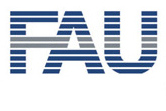 Die IDE-Mitglieder Malte Rehbein und Torsten Schaßan sprechen auf der Tagung „Papstgeschichte des hohen Mittelalters: digitale und hilfswissenschaftliche Zugangsweisen zu einer Kulturgeschichte Europas“ am 20./21.2.2015 in Erlangen. Malte Rehbein behandelt das Thema „Geschichtsforschung im digitalen Zeitalter“, Torsten Schaßan gibt einen Überblick über „Methoden digitaler Erschließung mittelalterlicher Schriften“. [Zum Tagungsprogramm]
Die IDE-Mitglieder Malte Rehbein und Torsten Schaßan sprechen auf der Tagung „Papstgeschichte des hohen Mittelalters: digitale und hilfswissenschaftliche Zugangsweisen zu einer Kulturgeschichte Europas“ am 20./21.2.2015 in Erlangen. Malte Rehbein behandelt das Thema „Geschichtsforschung im digitalen Zeitalter“, Torsten Schaßan gibt einen Überblick über „Methoden digitaler Erschließung mittelalterlicher Schriften“. [Zum Tagungsprogramm]
Neue Ausgabe XML-Kurzreferenz für Einsteiger
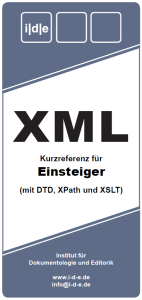
Endlich ist eine neue Ausgabe der IDE-XML-Kurzreferenz für Einsteiger verfügbar. Sie stellt XML, Schemata (am Beispiel DTD), XPath und XSLT anhand von Beispielen und Regeln vor. Für die Neuausgabe wurde die in Form eines Flyers herausgegebene Referenz überarbeitet, erweitert und neu gestaltet. Sie kann hier als PDF-Datei heruntergeladen werden und ist in gedruckter Form beim IDE erhältlich.
Spring School: Advanced XML/TEI technologies for Digital Scholarly Editions, 13.-17.4.2015 – Graz
The Institute for Documentology and Digital Editing (IDE) offers a spring school on Advanced XML/TEI technologies for Digital Scholarly Editions in cooperation with the Digital Scholarly Editions Initial Training Network (DiXiT). The spring school will be run and held at the at the Centre for Information Modelling – Austrian Centre for Digital Humanities at the University of Graz from 13th to 17th April 2015.
The spring school is directed to participants with previous experience in XML/TEI editing who would like to involve themselves more intensively with the creation of digital scholarly editions based on the international encoding standard XML TEI P5. Besides addressing specific issues and use cases of text encoding, the participants will be trained what to do with the data once the encoding is done and how to process it further until the publication on the WWW. To this end the teaching will strongly focus on XPath, XSLT, HTML and CSS as technologies for the web publication of digital scholarly editions.
– See more at: http://www.i-d-e.de/events-des-ide/spring-school-2015#sthash.Lik8vUEy.dpuf
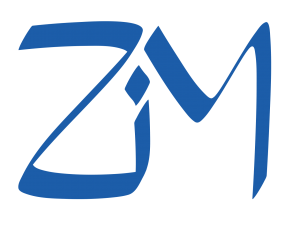 The Institute for Documentology and Digital Editing (IDE) offers a spring school on Advanced XML/TEI technologies for Digital Scholarly Editions in cooperation with the Digital Scholarly Editions Initial Training Network (DiXiT). The spring school will be run and held at the Centre for Information Modelling – Austrian Centre for Digital Humanities at the University of Graz from 13th to 17th April 2015.
The Institute for Documentology and Digital Editing (IDE) offers a spring school on Advanced XML/TEI technologies for Digital Scholarly Editions in cooperation with the Digital Scholarly Editions Initial Training Network (DiXiT). The spring school will be run and held at the Centre for Information Modelling – Austrian Centre for Digital Humanities at the University of Graz from 13th to 17th April 2015.
The spring school is directed at participants with previous experience in XML/TEI editing who would like to involve themselves more intensively with the creation of digital scholarly editions based on the international encoding standard XML TEI P5. Besides addressing specific issues and use cases of text encoding, the participants will be trained what to do with the data once the encoding is done and how to process it further until the publication on the WWW. To this end the teaching will strongly focus on XPath, XSLT, HTML and CSS as technologies for the web publication of digital scholarly editions.
Read more at http://www.i-d-e.de/aktivitaeten/schools/spring-school-2015
RIDE Issue 2 published
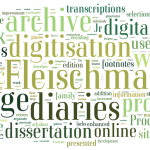 The Institute for Documentology and Scholarly Editing (IDE) is happy to announce the publication of issue 2 of our review journal RIDE. This time there are 5 reviews (4 in English, 1 in German) on publicly available scholarly digital editions. This is the table of contents:
The Institute for Documentology and Scholarly Editing (IDE) is happy to announce the publication of issue 2 of our review journal RIDE. This time there are 5 reviews (4 in English, 1 in German) on publicly available scholarly digital editions. This is the table of contents:
- 16th Century Chronicle to 21st Century Edition: A Review of The Diary of Henry Machyn, by Misha Broughton
- Der Zürcher Sommer 1968: Die digitale Edition, by Friederike Wein
- The Digital Edition of the Becerro Galicano de San Millán de la Cogolla, by Francisco Javier Álvarez Carbajal
- The Fleischmann Diaries, by Merisa A. Martinez
- The Shelley-Godwin Archive: The edition of Mary Shelley’s Frankenstein Notebooks, by Frederike Neuber
All reviews can be accessed free of charge at http://ride.i-d-e.de.
IDE@uni-potsdam.de
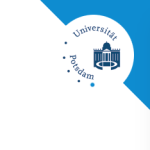 Am 12. Dezember 2014 gestaltet das IDE-Mitglied Markus Schnöpf einen Workshop an der Universität Potsdam zu den Digital Humanities mit und trägt unter Anderem zu ride und digitalen Editionen vor. Für weitere Informationen hier klicken.
Am 12. Dezember 2014 gestaltet das IDE-Mitglied Markus Schnöpf einen Workshop an der Universität Potsdam zu den Digital Humanities mit und trägt unter Anderem zu ride und digitalen Editionen vor. Für weitere Informationen hier klicken.